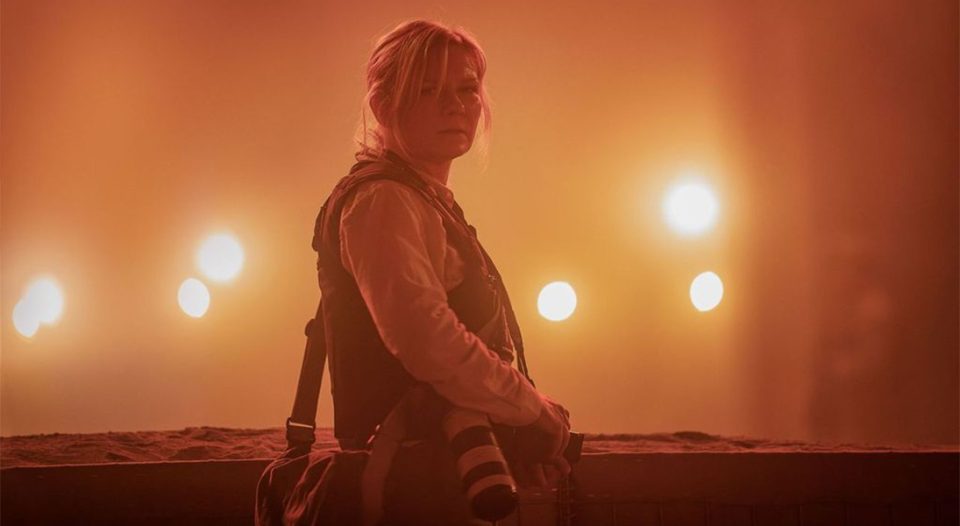As a veteran photojournalist, Lee Smith (Kirsten Dunst) has had her share of adventures. But even she never expected to find herself pinned down by sniper fire in a dilapidated Christmas village, constructed on an abandoned golf course, 178 miles outside of Washington, D.C.
When Lee’s fellow journalist Joel (Wagner Moura) finds a pair of soldiers trying to take out the sniper hiding in the clubhouse across the course, he looks for an explanation.
“Who’s giving you orders?” Joel asks.
“No one’s giving us orders, man,” says the droll soldier. “Someone’s trying to kill us. We’re trying to kill them.”
Like nearly every other part of the new movie Civil War, the power of this scene comes from the juxtaposition of the mundane with the horrific. Despite the soldiers and guns, the scene still looks beautiful, with soft grass dancing in the wind.
Written and directed by British filmmaker Alex Garland, Civil War takes place in a near-future when a divide between the federal government and rebels in California and Florida has torn the country apart. Within days the rebel forces will reach Washington, D.C., and capture the president (Nick Offerman), effectively winning the war. Lee and Joel hope to document the event for posterity, along with veteran New York Times writer Sammy (Stephen McKinley Henderson) and young newcomer Jesse (Cailee Spaeny)
Though vague about the details of the conflict, Civil War is unnerving nevertheless. Shots of armed forces descending on the U.S. Capitol are reminiscent of the Jan. 6 riots, whereas a refugee camp for U.S. citizens recalls the FEMA settlements that followed Hurricane Katrina. Garland plays with the sound mix to make every single gunshot impactful, a concussive pop that pierces the theater and stays lodged in viewers’ memories.
Civil War calls to mind the distinction between the world to which Christians bear witness and the world as it seems to exist.
Instead of wrestling explicitly with the ideological and political issues facing the United States today, Civil War interrogates the ethics of journalism. The film invites viewers to question the reporters’ decision to watch and report on the carnage instead of getting involved. However, the movie also gives space for the journalists to explain their actions.
Lee explains her vocation in terms of bearing witness, a concept familiar to Christians. Recalling her coverage of conflicts in Eastern Europe and North Africa, Lee says that she thought of her work as “a message back home, warning them not to do this.” She says this while walking past a suburban school riddled with bullets.
As Christians, we have the opposite job. Throughout the Gospel of John, Jesus teaches his disciples the importance of testifying: first he testifies to the wisdom of God and then the disciples share what they witnessed with him. We continue that tradition today, teaching a world mired in violence and power politics about the Prince of Peace and the restoration of God’s creation.
In that sniper scene Civil War calls to mind the distinction between the world to which we Christians bear witness and the world as it seems to exist. As snipers in the field face off against the sniper in the house, Christmas carols play in the background. “Silent Night” flows through tin speakers, speaking the heavenly peace that comes with Christ’s birth.
An echo of a shot rings out, drowning out the carol. “Good news,” declares the soldier peering into the house. They’ve killed their enemy.
Even through the echo of the bullet we can hear the strains of the song, reminding us of the true good news: God has come in the form of Christ, showing us a better way than war. That’s the good news we share today, news of a peace that passes understanding.




